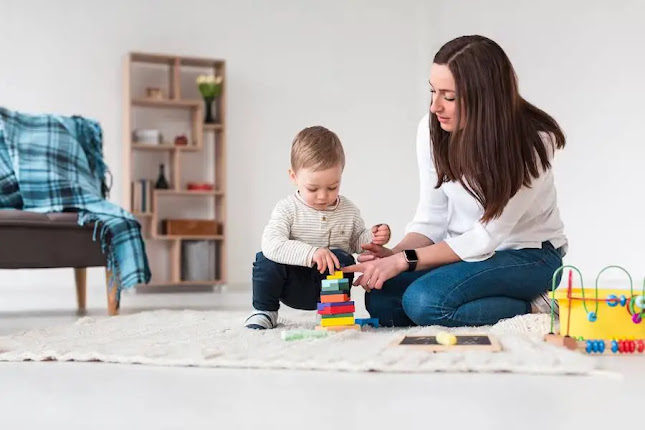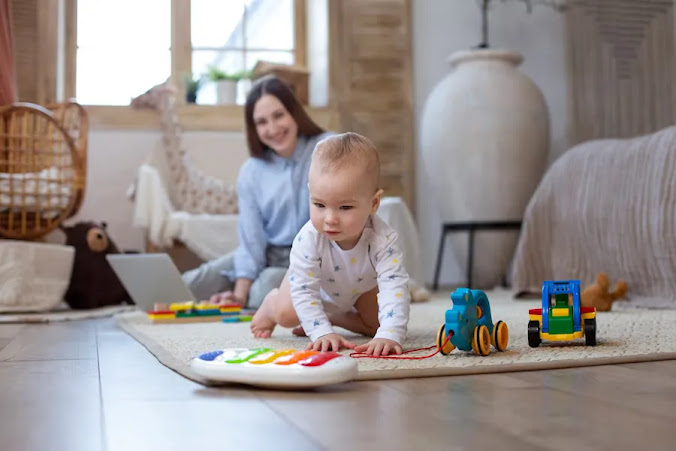Everyday Activities to Encourage Fine Motor Skills: Turning the Ordinary into Skill-Building Adventures
Who says developing fine motor skills needs to be a chore? It's time to turn everyday activities into skill-building adventures! From buttoning shirts to cutting food, these activities can provide a fun and engaging way to enhance your child's fine motor skills. So, let's dive in and discover seven exciting everyday activities that will have your little one's fingers dancing with dexterity!
Buttoning and Zipping: Dressing up is not just about style, it's an opportunity for fine motor skill development. Encourage your child to practice buttoning shirts, zipping up jackets, and fastening snaps. These activities require precise finger movements and hand-eye coordination, helping to refine their gross motor skills.To make it more enjoyable, turn it into a game. Time your child to see how quickly they can button up or create a story where they are superheroes using their fastening powers. With practice, they'll become little fashionistas while boosting their dexterity!
Cutting and Tearing Paper: Arts and crafts time provides an excellent opportunity to boost fine motor skills through cutting and tearing paper. Equip your child with child-safe scissors and encourage them to cut along lines or create their own shapes.Start with simple straight lines and progress to more intricate shapes as they gain confidence. Tearing paper into smaller pieces also helps refine finger control. Use the cut and torn paper for collages or crafts, turning this activity into a creative masterpiece!
Beading and Stringing: Stringing beads onto a lace or thread is an engaging and rewarding activity that promotes fine motor skills and hand-eye coordination. Give your child colorful beads and a lace or string, and let them create unique necklaces or bracelets. As they thread each bead, they'll develop their pincer grip and finger strength. Encourage them to experiment with patterns and colors, adding an extra layer of creativity to their fine motor skill development.
Cooking and Baking: Engage your child in the kitchen and turn cooking and baking into a fine motor skill bonanza. From stirring batter to pouring liquids, these activities require precision and control.Let your child measure ingredients using measuring cups and spoons, helping them refine their hand-eye coordination and finger control. Activities like kneading dough or rolling out cookie dough also enhance their fine motor skills while developing a love for culinary adventures.
Tying Shoelaces: Teaching your child how to tie their shoelaces is not only a practical skill but also a fantastic way to boost fine motor skills. Break down the steps into simple instructions and provide patience and guidance as they practice. This activity enhances finger dexterity, hand-eye coordination, and independence.
Sorting and Organizing: Engage your child in sorting and organizing activities using small objects like buttons, beads, or coins. Encourage them to categorize and arrange the items based on color, shape, or size. This task improves their hand control, precision, and cognitive skills as they make decisions and group items accordingly.
Playing with Play Kitchen: Playing with a play kitchen allows your child to engage in various fine motor skill activities. From stirring and whisking ingredients to using tongs to transfer pretend food, they'll enhance their hand control and coordination. Encourage imaginative play and let them serve up delicious creations.
Brushing and Self-Care Activities: Encourage your child to practice self-care activities like brushing their teeth, combing their hair, and buttoning their own clothes. These everyday tasks require fine motor skills and promote independence. Provide support and guidance as they develop these essential self-care skills.
Playing with Stickers: Sticker activities provide an opportunity for fine motor skill development. Give your child a sticker book or a blank paper where they can place stickers. Peeling off the stickers and precisely placing them requires finger control, hand-eye coordination, and concentration.
Playing Musical Instruments: Encourage your child to explore musical instruments like a xylophone, drum, or mini keyboard. Playing these instruments requires finger control and coordination, enhancing their fine motor skills while igniting their musical creativity.
Drawing and Coloring: Provide your child with crayons, markers, and coloring pencils. Encourage them to draw and color within the lines, promoting hand control and precision. They can also practice tracing shapes or connecting dots to further develop their fine motor skills.
Playing with Tweezers or Tongs: Introduce tweezers or child-friendly tongs and provide small objects like pompoms or beads. Encourage your child to pick up and transfer the objects using the tweezers or tongs. This activity helps develop their pincer grip and fine motor control.
Household Chores: Involve your child in age-appropriate household chores that require fine motor skills, such as folding laundry, sweeping, or dusting. These activities promote hand-eye coordination, finger control, and responsibility. Your child will feel a sense of accomplishment while developing essential life skills.
Playing with Stacking Cups: Introduce a set of stacking cups and let your child explore different ways to stack and nest them. They can experiment with various patterns, sizes, and sequences. Stacking cups help develop hand-eye coordination, finger control, and problem-solving skills as they figure out how to balance and build stable structures.
Remember, these activities not only promote fine motor skills but also foster creativity, problem-solving, and independence. So, get creative, have fun, and watch your child's fine motor skills soar as they embark on these exciting everyday adventures!



Comments
Post a Comment